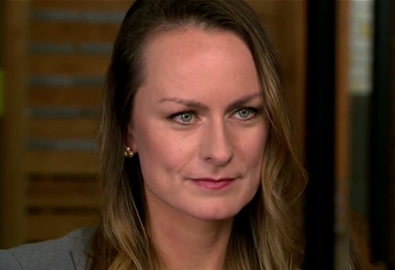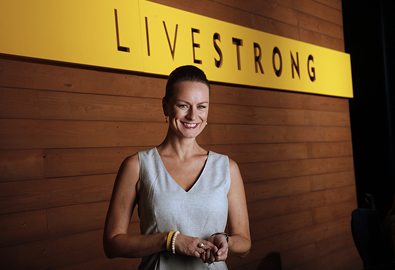[vc_row][vc_column][vc_column_text]By Katherine McLane
A veritable case study on modern media and conventional wisdom played out in recent days as reporters, bloggers, pundits, and, eventually, half of your Facebook friends, reacted to a JAMA Internal Medicine story about how 50 years ago, the Sugar Research Foundation funded Harvard-led research into sugar and its potential health effects.
Although the story’s authors Cristin Kearns, Laura Schmidt and Stanton Glantz pointed out “there is no direct evidence that the sugar industry wrote or changed the (New England Journal of Medicine) review manuscript” and “the evidence that the industry shaped the review’s conclusions is circumstantial,” that didn’t stop certain audiences from quickly jumping to conclusions (i.e. accusations).
The New York Times weighed in; the headline of its story…The Shady History of Big Sugar and its health blog, Well, featured a slew of stories on the supposed infiltration of sugar into nearly all facets of our daily diets. A Big Tobacco Moment for the Sugar Industry is how The New Yorker described it. Those stories were just the tip of the iceberg as the narrative played out in publications all over the world.
The misleading conventional wisdom that began to take shape as opinions proliferated was that the sugar industry is responsible for America’s obesity epidemic today because half a century ago, it successfully pulled the wool over everyone’s eyes with this one Harvard-led study.
Several things jump out at anyone willing to thoughtfully consider the facts:
• Can it really be that there is so little other dietary research in existence that this 50 year-old industry-funded study completely reconfigured how government, science, medicine, and the general public view basic nutrition?
• Do we collectively believe that Harvard, one of the most distinguished institutions of higher education and research in the world, would eagerly collude with any industry and compromise scientific evidence in order to make a few extra dollars? Or that Harvard would employ scientists who would engage in pay-to-play research?
• Doesn’t this version of events as reported (i.e. that Big Sugar is essentially responsible for the obesity epidemic in America) completely exclude other related industries from consideration—industries that also had a clear interest in shaping Americans’ diets over the previous decades? Are we to believe that during the past half-century no other industries in this space were helping to fund serious scientific research by respected academic institutions?
• Behind the shock apparent in the recent media coverage there also seems to be distaste for industry-funded research, as if the very notion of an industry paying a distinguished third-party institution to objectively examine its products and their effects is repugnant. (Why shouldn’t they? In fact, don’t they have a responsibility to do so for the sake of the public trust?)
• Are we to believe that any academic or scientist who performs industry funded research – even if they follow every ethical, scientific, and institutional guideline, as the Harvard scientists appear to have done – has compromised himself somehow?
• Dr. Cristin Kearns’ twitter handle is @Sugarpolitics and she has authored numerous articles critical of the sugar industry. Can we imagine that the JAMA Internal Medicine story was produced free of any pre-existing positions and/or desired outcomes?
So what the story really boils down to is this: the sugar industry paid Harvard to do research, just as any number of other industries compensate any number of other institutions to do—and have been doing for decades. And there is absolutely no evidence of wrongdoing; it is simply manufactured rage led by a chorus of anti-industry voices.
So, why did the coverage turn out the way it did? Who can say? But we can point to other instances where opinions were issued, conventional wisdom was adopted and, as it turns out, we got it wrong.
One prominent example of this myth busting has to do with a woman’s ability after a certain age to safely carry to term a healthy baby. As we know, the conventional wisdom in the U.S. used to be that after 35, a woman’s chance of conceiving naturally was lousy. And by 39, it was probably going to take something close to a miracle, right?
Enter The Atlantic, which published an excellent story in 2013 about female fertility and aging. Author Jean Twenge, a psychology researcher, decided to find the source of our conventional wisdom and was shocked to discover the following:
“I scoured medical-research databases, and quickly learned that the statistics on women’s age and fertility—used by many to make decisions about relationships, careers, and when to have children—were one of the more spectacular examples of the mainstream media’s failure to correctly report on and interpret scientific research. The widely cited statistic that one in three women ages 35 to 39 will not be pregnant after a year of trying, for instance, is based on an article published in 2004 in the journal Human Reproduction. Rarely mentioned is the source of the data: French birth records from 1670 to 1830.”
The author goes on to describe a Danish study published in 2004 that shows more than 80 percent of 35-to-39-year old participants conceived within a year. Twenty-seven-to-35-year-old participants were only slightly more likely to conceive.
Because of the mistaken conventional wisdom of our time, many women are still making reproductive decisions based on data collected more than 300 years ago in France, well before the age of modern medicine and birth control.
The recent incendiary headlines about “Big Sugar” as society’s bogeyman de jour—particularly when set against the backdrop of how often conventional wisdom is rooted in outdated facts or little more than anecdotal evidence—should be a wakeup call for all Americans who consider themselves well-versed on matters of public health and health policy. Between the headlines, there is nearly always more to the story. Let’s all make an effort to dig a little deeper for the meaningful facts in every story, study, accusation, proclamation, and public health declaration. It will be to the benefit of each and every one of us—regardless of whether or not you take sugar in your morning cup of coffee.
Katherine McLane is a spokesperson for the Texas Beverage Association.
[/vc_column_text][/vc_column][/vc_row]


